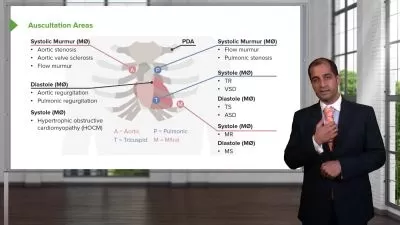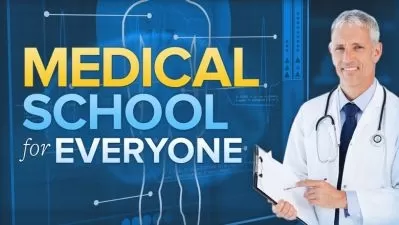ECMO : In Hospital and Transport
Jennifer Vieira
1:40:07
Description
What can go wrong, will, at the worse possible time
What You'll Learn?
- Define ECMO and understand the purpose
- Understand the separate circulation physiology between the patient and mechanical unit
- Understand the most common emergencies with an ECMO patient
- Understand interventions for the most common emergencies
Who is this for?
What You Need to Know?
More details
DescriptionThis course walks the student through the basic physiology of the ECMO system. In addition, it teaches about the most common emergencies and how to intervene with limited resources, especially in transport. Students that would benefit from this course in any critical care nurse, paramedic, or physician.Â
Extracorporeal membrane oxygenation (ECMO), a term used to describe oxygenation that occurs outside of the body, is an increasingly common means of supporting the most critically ill patients. Because of the invasiveness and high probability of serious complications during ECMO, it is typically indicated only when there is a high likelihood of death with conventional treatment. With continued improvements in technology and increasing clinical experience, transport clinicians are increasingly likely to be called on to care for ECMO patients.Â
Highlights include:
Critical care transport clinicians must appreciate the differences between venovenous and venoarterial extracorporeal membrane oxygenation (ECMO) as well as common indications for each and the physiology of both configurations
Traditional monitoring techniques such as peripheral capillary oxygen saturation may not be reliable
Preparation for emergencies is imperative because decompensation can be rapid and masked until death occurs
ECMO is a bridge to another option and is not a cure
Critical Care Providers must know if a patient is a candidate for ECMO support prior to making the decision
Who this course is for:
- Intermediate critical care nurses, paramedics, transport technicians, resident doctors, respiratory therapists
This course walks the student through the basic physiology of the ECMO system. In addition, it teaches about the most common emergencies and how to intervene with limited resources, especially in transport. Students that would benefit from this course in any critical care nurse, paramedic, or physician.Â
Extracorporeal membrane oxygenation (ECMO), a term used to describe oxygenation that occurs outside of the body, is an increasingly common means of supporting the most critically ill patients. Because of the invasiveness and high probability of serious complications during ECMO, it is typically indicated only when there is a high likelihood of death with conventional treatment. With continued improvements in technology and increasing clinical experience, transport clinicians are increasingly likely to be called on to care for ECMO patients.Â
Highlights include:
Critical care transport clinicians must appreciate the differences between venovenous and venoarterial extracorporeal membrane oxygenation (ECMO) as well as common indications for each and the physiology of both configurations
Traditional monitoring techniques such as peripheral capillary oxygen saturation may not be reliable
Preparation for emergencies is imperative because decompensation can be rapid and masked until death occurs
ECMO is a bridge to another option and is not a cure
Critical Care Providers must know if a patient is a candidate for ECMO support prior to making the decision
Who this course is for:
- Intermediate critical care nurses, paramedics, transport technicians, resident doctors, respiratory therapists
User Reviews
Rating
Jennifer Vieira
Instructor's Courses
Udemy
View courses Udemy- language english
- Training sessions 28
- duration 1:40:07
- Release Date 2022/11/26









